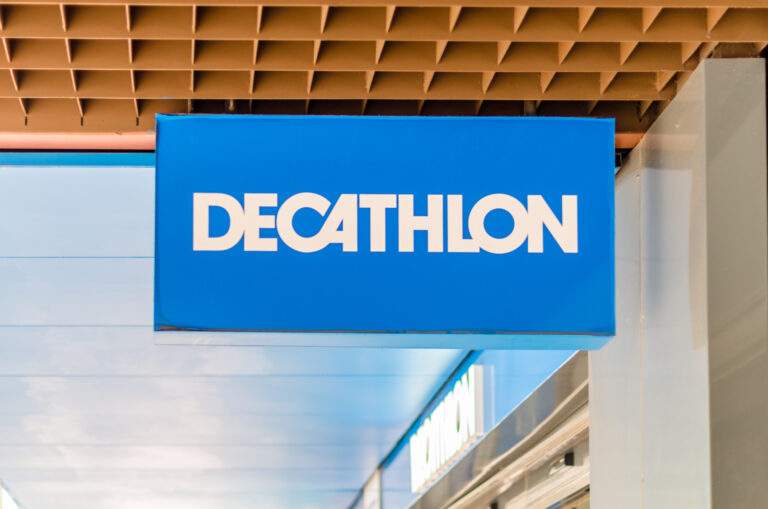
What if Decathlon was the anti-Kodak?
If there is a social body that does not hide behind its illusions, it certainly is the one of France’s favorite brand for years!
If there is a social body that does not hide behind its illusions, it certainly is the one of France’s favorite brand for years!
Who better than Decathlon’s employees to understand the structural limits of a product distribution sector whose growth objectives accelerate the planetary ecological crisis every day?
In a very traditional retail model, distributors aim to sell as many new products as possible without worrying about their life cycle.
We have all been living for years with an obscene amount of planned obsolescence. I have brought back in the last few years 4 “high-end” coffee machines for repair, with repair costs close to the actual value of the equipment. For the “rolls royce” of coffee, the company just might as well take the customer as a hostage. I had to make a decision: change brands for good. Let’s not talk about iPhone batteries, whose normal life span rarely exceeds 18 months without being able to be changed by simply opening the shell. For the price of the gem, this might as well be called…
In the case of everyday use, one can understand the need to buy new. When it comes to a surfboard, skis or a kayak, it becomes more debatable, right?
Almost all of us have in our cellars, garages or closets a lot of aging equipment, either too small or too big, often damaged or simply unused. Growing children may be changing sizes and quality of equipment almost every year… not to mention their fickle taste for the sport of the moment.
In July, we organized with the NextGen team a meeting of leaders entitled “Towards the regenerative enterprise: the ecological impact on business models”. Numerous companies including L’Occitane and La Maison Le Rouge Français, Phénix, Karma, M2i Life Sciences, AkzoNobel France, H2X Ecosystems, and Agronutris shared their proactive approach towards new forms of business models that are less dependent on possession and more focused on use and functionality.
But apart from fossil fuel companies, which are the main targets of criticism regarding their ecological impact, some sectors are structurally poorly positioned to achieve carbon neutrality. Among them are retailers, and Decathlon could well disrupt them by initiating a historic movement.
We had the chance to talk with Luc Teerlinck, founder and co-leader of We Play Circular at Decathlon.
The scenario tested by his team on 70 first Belgian customers and soon 2000 (and maybe 10,000 afterwards) in March 2023 in France and Belgium, offers families or individuals Netflix or Deezer style packages to access Decathlon’s entire catalog or almost… that is 40,000 different products. This way, for €25 per month, a customer can simultaneously use €400 worth of Decathlon products, €1,000 worth of equipment for €50/month and €2,000 worth of equipment for €95/month.
The estimated profitability potential surpasses the current model by 9 to 12 times. This is a win-win situation for the customer with lower prices, better quality products and new services around them for a better experience. As Luc Teerlinck points out, “the higher the quality of the products, the longer their life span and the lower the prices, this time by putting positive pressure on the upstream chain at the ecological and social level”.
The first “constraint” of the model is therefore to take care of the products.
The customer locates the products in the store, places orders on the Internet, and then picks up the material, currently in the store.
The subscription gives access to all the products and the customer can keep them as long as he wants: one day, one week, one year, … as long as he takes care of them. Upon return, the store performs a quick check up of the equipment sent to a warehouse for a more thorough review.
If necessary, the latter will proceed to the reconditioning of the products.
According to Luc Teerlinck, beyond the We Play Circular initiative, many movements are at work at Decathlon on different circular business models, second life, short term rental or vertical subscriptions such as the children’s bike subscription.
The whole process of reverse logistics is a commitment made by Decathlon some time ago and everything is accelerating to support the different circular projects.
According to Luc Teerlinck, beyond the We Play Circular initiative, many movements are at work at Decathlon on different circular business models, second life, short term rental or vertical subscriptions such as the children’s bike subscription.
The whole process of reverse logistics is a commitment made by Decathlon some time ago and everything is accelerating to support the different circular projects.

Author: Luc Bretones, CEO at NextGen
| Cookie | Duration | Description |
|---|---|---|
| cookielawinfo-checkbox-analytics | 11 months | This cookie is set by GDPR Cookie Consent plugin. The cookie is used to store the user consent for the cookies in the category "Analytics". |
| cookielawinfo-checkbox-functional | 11 months | The cookie is set by GDPR cookie consent to record the user consent for the cookies in the category "Functional". |
| cookielawinfo-checkbox-necessary | 11 months | This cookie is set by GDPR Cookie Consent plugin. The cookies is used to store the user consent for the cookies in the category "Necessary". |
| cookielawinfo-checkbox-others | 11 months | This cookie is set by GDPR Cookie Consent plugin. The cookie is used to store the user consent for the cookies in the category "Other. |
| cookielawinfo-checkbox-performance | 11 months | This cookie is set by GDPR Cookie Consent plugin. The cookie is used to store the user consent for the cookies in the category "Performance". |
| viewed_cookie_policy | 11 months | The cookie is set by the GDPR Cookie Consent plugin and is used to store whether or not user has consented to the use of cookies. It does not store any personal data. |